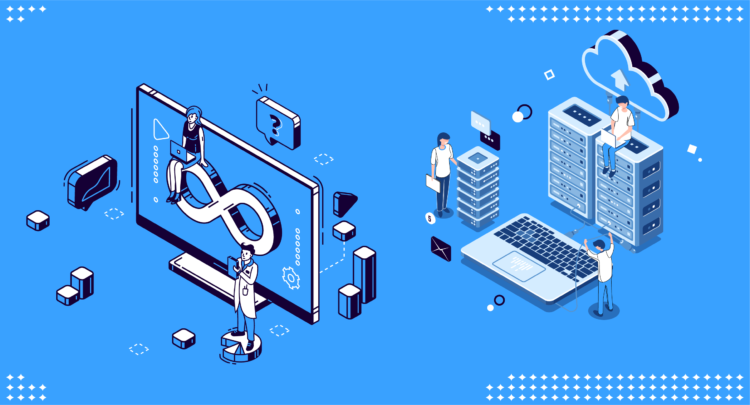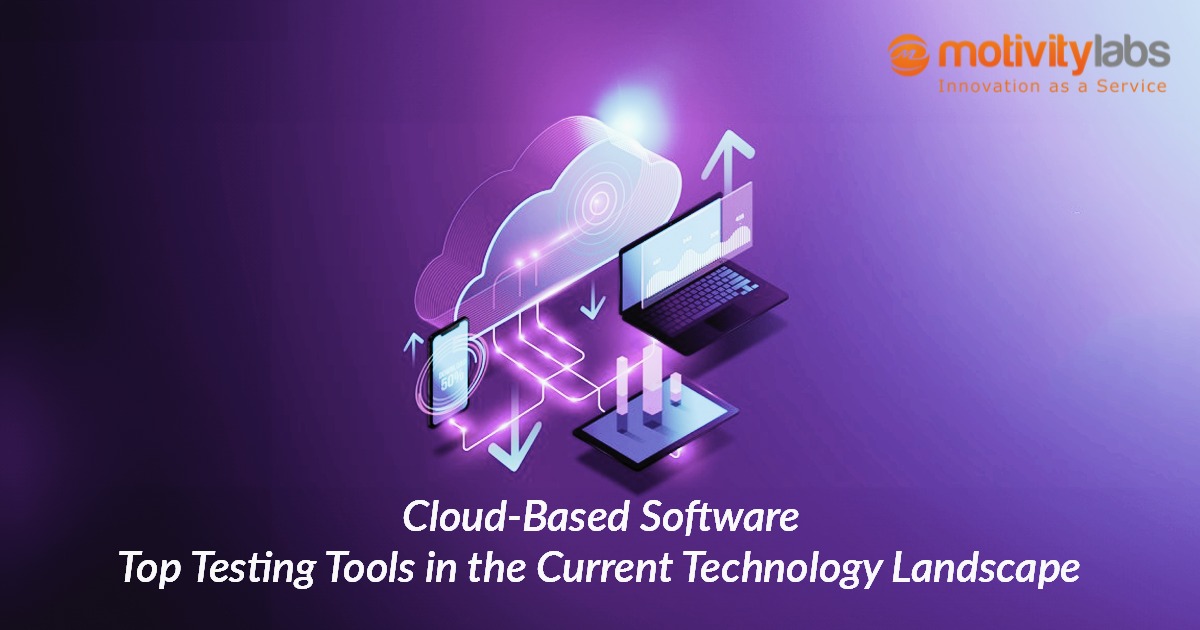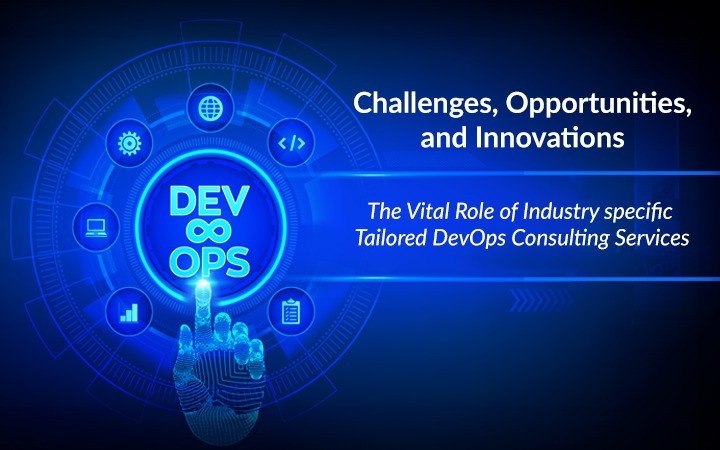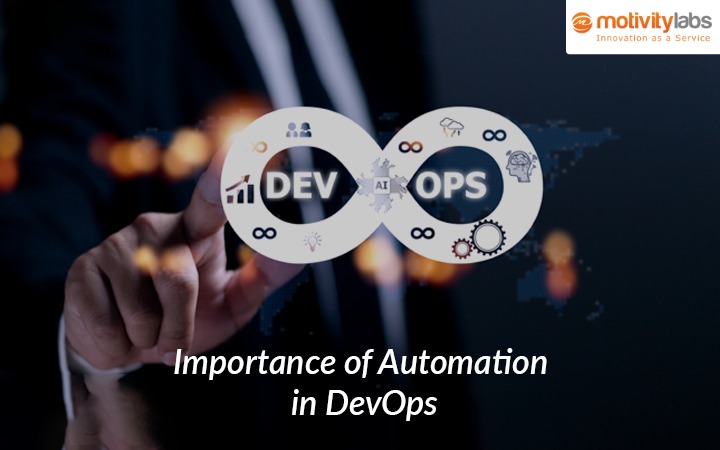What is Devops and Cloud?
Major companies around the world are getting their DEVOPS married to a suitable CLOUD for a happily ever after CLOUD and DEVOPS services. What does it mean and why is devops and cloud computing alliance so fruitful? Let’s find out.
The birth of DEVOPS
In a traditional software development, a client approaches a software company and requests for a solution to automate his company’s activities. The software team doesn’t immediately jump in to write the code. They approach the project in stages, each stage is dedicated to one specific activity. There are different stages in the Software Development Life Cycle or SDLC viz., Planning, Analysis, Design, Development, Testing, Implementation and Maintenance.
Once a stage is completed in the SDLC, there is no going back to the same stage but to move forward. This worked fine for a while where the client’s requirement doesn’t change and is constant throughout the project. But times have changed since then making all the previous SDLC models redundant. This is because in today’s world, the requirements of the clients keep changing quite often and it is very difficult to go back to the previous stages in SDLC to incorporate the new requirements using the old methods of SDLC.
So, a new method is required in SDLC where new requirements can be incorporated at any stage no matter where the project is during development with agility and accuracy. This has given birth to DEVOPS. DEVOPS is basically a set of methods / procedures adopted during the SDLC where any changes at any stage can be incorporated with ease and agility by bringing in together the development team and operations team. The purpose of bringing in these teams together is to make things easier for both the teams in updating or incorporating client’s changing requirements. Since its invention in 2007 – 2008, it has come a long way and gained much more popularity than its predecessors!
The birth of CLOUD
The seed to CLOUD computing was planted way back in 1961, when John McCarthy, an American computer scientist in one of his speeches at MIT’s centennial talked about “utility computing” meaning that the computer time sharing technology might result in a future where computing power and computer applications can be sold as utility just like water and electricity. Even though the idea was brilliant, lack of proper technology (Internet!) has kept the idea on the back burner.
Time has passed, technology has caught up eventually and the same idea has resurfaced with different names like application service provider, grid computing before settling for CLOUD computing. CLOUD computing is basically storing and accessing computer programs over the Internet on demand. Let’s see how CLOUD works. Suppose, you are a user with a requirement and a vendor is ready to offer their services to you via the Internet. You can pay the vendor for the time you used their services. This technology gained popularity as companies started understanding better about the services CLOUD can offer.
Today, all the major software companies have their own CLOUD platforms. Amazon has Amazon Web Services (AWS), Microsoft has AZURE, Google has Google CLOUD Platform, IBM has Big Blue, and we have Alibaba from China too. These CLOUD platforms offer various web based services. It cover all the company’s IT requirements viz., Networking, Storage, Servers, Virtualization, O/S, Middleware, Runtime, Data, and Applications.
Services by Cloud
The services offered by a CLOUD provider are categorized into 3 models based on the range of services they offer. They are – IaaS, PaaS, SaaS. IaaS stands for Infrastructure as a Service. In this model, the CLOUD service provider will take care of the company’s Network, Storage, Servers and Virtualization. The remaining aspects should be taken care of by the company itself. PaaS stands for Platform as a Service. In this model, apart from the services mentioned under IaaS, the CLOUD service provider will take of Operating System, Middleware and Runtime. The client will take care of the remaining Data and Applications. SaaS stands for Software as a Service. In this model the CLOUD service provider offers all the IT services for a company from Networking to Applications.
The Alliance
Now we have understood what CLOUD and DEVOPS has to offer individually. Let’s find out what is devops and cloud have in store when combined. Let’s look at the two scenarios here to understand the cloud and devops services better. Suppose you are a building start up where resources are limited for you. You want to automate your operations by computerizing the whole system and you are trying to achieve this through DEVOPS. Initially, you may not be able to afford a server for building test environments. This is where CLOUD lends its hand.
CLOUD provides simulated test environments that are indistinguishable from live environments. So, you need not buy a physical server and maintain it. CLOUD computing makes the implementation of DEVOPS at every step. With the help of a CLOUD, applications can be built fast. It can be tested in various simulated environments through kernels and virtualization. All this saves a bundle of time and money which are the most essential things for a startup.
CLOUD security and DEVOPS automation
CLOUD allows collaboration with different teams at various locations to quickly make changes that are required urgently, thus avoiding the downtime. It also provides secure gateways for its users thus eliminating the need to separately go in for some CLOUD security and DEVOPS automation solutions. All these services are offered at a fraction of what a start up would spend in the absence of a CLOUD service. By employing the services of CLOUD, a start up can take off a lot of burden from its developers and operations team and can focus on the deliverables. CLOUD helps DEVOPS in every step of its various operations and thus is a perfect match!
Coming to the second scenario, imagine you are an e-commerce giant or popular streaming platform. There are continuous integration and deliverables required and the same is achieved through successful implementation of DEVOPS. Suppose there is a big sale on cards or a new movie is to be released. The traffic will be huge on the day which you can’t predict.
You are a big company and you can afford a big server. But how to predict the size of the server for that particular day? Apart from that, obviously after the big event is over the traffic will come down making the big server redundant till the next big event. This is where CLOUD steps in. The process of adding or removing storage, network and any other computing services to meet the demands a workload makes for resources is called Scaling. And this auto scaling can be achieved by employing CLOUD services.
Collaboration with a CLOUD service
When you are in the e-commerce industry, all you need to worry about is your sales and customers. One shouldn’t be worried about the server maintenance, traffic, security. Even if you want to get involved in all these, it will cost you time and money. Life becomes easy when you collaborate with a CLOUD service. It takes care in every step of DEVOPS, so that you can focus on DEVOPS and CLOUD computing as well. What matters most – of increasing your sales and customers with CLOUD DEVOPS tools.
When DEVOPS is combined with CLOUD technology, One can add products to the business faster. Because of faster access to development environment and developer processes, system maintenance will be reduced. CLOUD security and DEVOPS automation will be taken care of. The downtime will be less, cost of infra-structure will come down as there is an option for auto scaling. You cannot take out CLOUD from DEVOPS and vice-versa, as DEVOPS and CLOUD computing are symbiotic in nature!
So, whether you are a start up or a giant or an in-between business, “marrying” your DEVOPS to a suitable CLOUD will make your life easier and the relation, fruitful!
For more information get in touch with our experts today.



